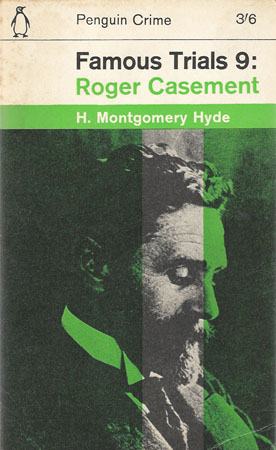
Out of Print
The Penguin Famous Trials series was started by Harry Hodge, who was Managing, Director of William Hodge & Co., Ltd, Publishers and Shorthand Writers. The son and grandson of a printer, he followed his father as one of the most expert of shorthand writers in Scotland, and for some fifty years was a well-known figure in the Scottish Courts both in that capacity and as a publisher of legal works.
In 1905 he founded The Notable British Trials Series which now extends to 70 volumes, commencing with that cause celebre, the Trial of Madeleine Smith. He was steeped in criminology all his life and held the view that a trial should be at least twenty years old before it can proveitself to have been notable, although this view had to be modified under modern conditions.
As general editor of that series he carefully selected his editors and insisted on the greatest possible accuracy in the presentation of each volume. Outside of his business life Mr Hodge's main interest was devoted to music, and he has a number of compositions to his name. He died in November 1947.
Since his death both The Notable Trial Series and the Penguin Famous Trials have been edited by his son, James Hozier Hodge. Moreover, in 1948, after long negotiations, James Hodge produced the first volumes in the War Crimes Trials Series, of which he is the assistant general editor to Sir David Maxwell Fyfe,P.C., Q.C., M.P
Volume 9In the middle of the First World War and on the eve of the Easter rising, Casement came ashore to Ireland. He had arrived by German submarine. Until his retirement, Casement had been a respected official in the consular service and had been knighted for his investigations into atrocities in Brazil and the Belgian Congo. He was now accused of attempting to recruit Irish prisoners of war in Germany to fight for independence against the British.
The case caused a sensation. There were complex legal arguments at both the trial and the appeal. The political ramifications were widespread and long- lasting. A smear campaign was orchestrated by some members of the British establishment the private circulation of Casement's diaries, which recorded his homosexual activities, worked against the possibility of reprieve and he was hanged.
H. Montgomery Hyde makes use of much original documentary evidence, including the diaries; his account of this tragic court- case is still vivid and deeply affecting.